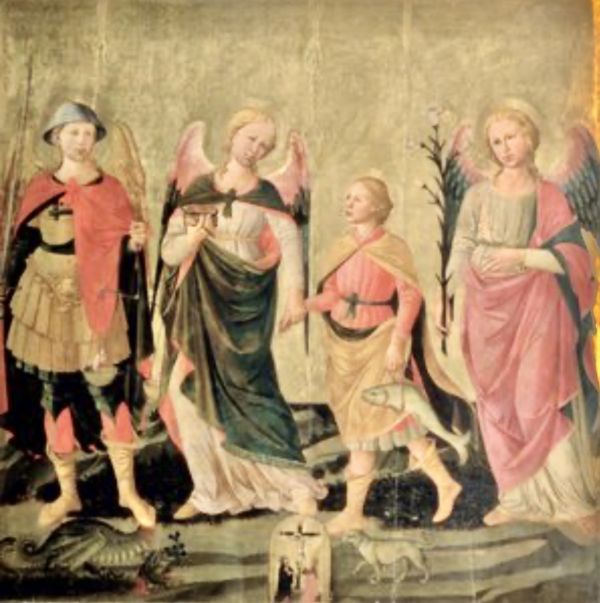The passage from the Gospel of John introduces us to the feast of Saints Michael, Gabriel and Raphael, archangels entrusted with special missions among men.
Jesus refers to them in his conversation with Nathanael about his divinity:
«You will see heaven open and the angels of God ascending and descending on the Son of Man» (Jn 1:51b).
Francis of Assisi had a special devotion to the Angels, so much so that he chose the Church of St. Mary of the Angels, a place of singular graces, as his small portion to live in.
The Sources, testimony to the life of the Poverello and all the friars, inform us.
"He venerated the Angels with the greatest affection, who are with us on the battlefield and walk with us in the shadow of death.
'We must venerate,' he said, 'these companions who follow us everywhere and likewise invoke them as guardians'.
He taught that we must not offend their gaze, nor dare to do in their presence what we would not do in front of men.
And precisely because psalms are sung in choir before the Angels, he wanted everyone who could to gather in the oratory* and sing psalms there with devotion.
He often repeated that Blessed Michael should be honoured in a more solemn manner because he has the task of presenting souls to God.
Therefore, in honour of St. Michael, between the feast of the Assumption and his own feast day, he fasted with the utmost devotion for forty days. And he said:
"Everyone should offer God a tribute of praise or some other special gift in honour of such a glorious prince" (FF 785).
And, regarding the Porziuncola:
"There he often enjoyed the visit of Angels, as the name of the church itself seemed to indicate, called since ancient times Santa Maria degli Angeli.
Therefore, he chose it as his residence because of his veneration for the Angels and his special love for the Mother of Christ.
The Saint loved this place more than any other place in the world. Here, in fact, he experienced the humility of his beginnings; here he progressed in virtue; here he happily reached his goal.
At the time of his death, he recommended this place to the friars as the place most dear to the Virgin" (FF 1048).
We can believe him, because Francis was an «Israelite in whom there is no deceit».
• Oratory = a place reserved for the prayer of religious or the choir of the church.












